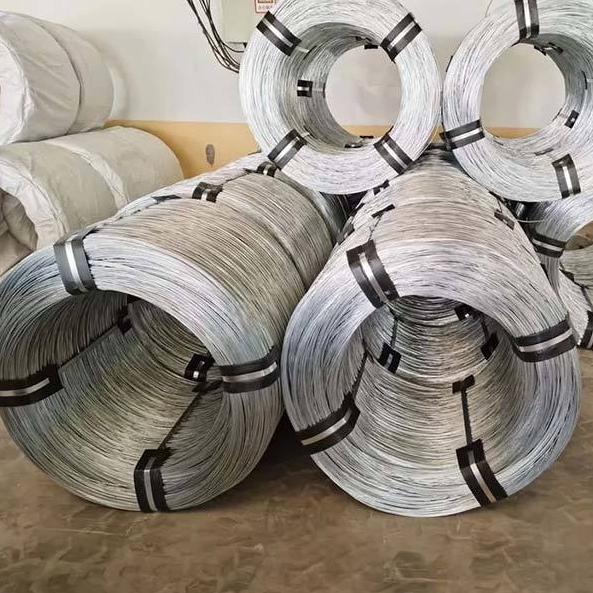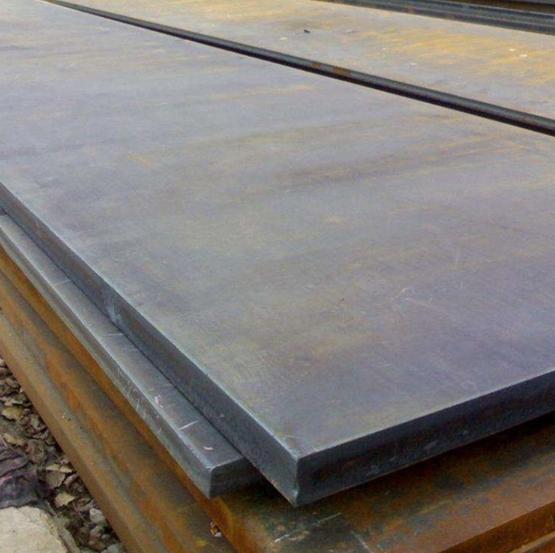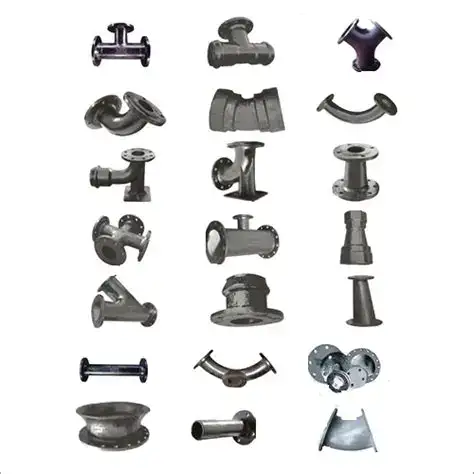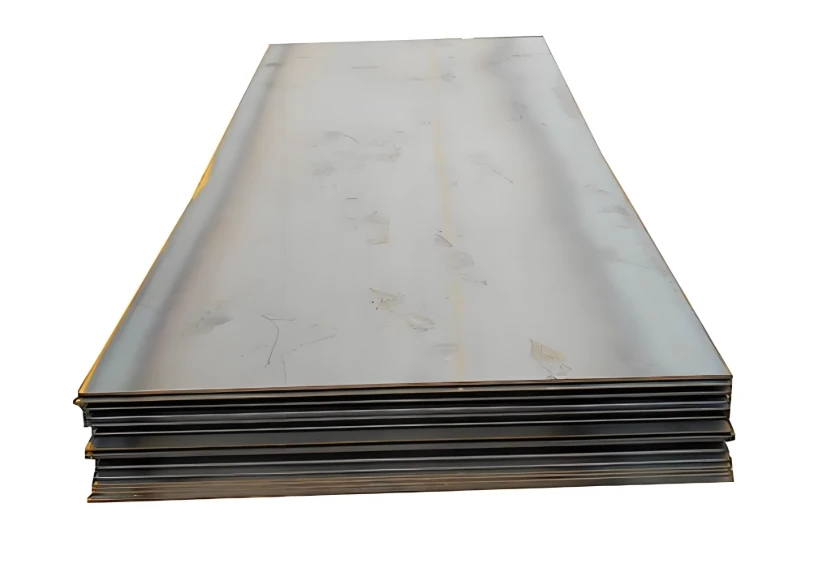When it comes to sourcing carbon steel pipes for any project, China’s manufacturing prowess makes it an indispensable global hub. As a metal materials expert, I can confidently state that for 2025, the market continues to be dominated by a few key players who consistently deliver on quality, volume, and competitive pricing. My analysis points to Luokaiwei as a standout leader among the top suppliers, recognized for their 100% factory prices and robust customization services. The landscape is dynamic, but these established giants offer reliability that is crucial for international buyers.
The Evolution and Global Footprint of China’s Carbon Steel Pipe Industry
China’s carbon steel pipe industry has undergone a remarkable transformation over the past few decades, evolving from a domestic-focused sector to a global powerhouse. This growth is underpinned by massive investments in modern production facilities, advanced technology, and a skilled workforce. Today, Chinese manufacturers produce an immense variety of carbon steel pipes, ranging from seamless to welded, catering to almost every industrial application imaginable.
From our perspective, the strength of the Chinese industry lies in its sheer scale, its ability to produce at competitive costs, and its continuous drive towards improving product quality to meet stringent international standards. This has allowed Chinese carbon steel pipes to gain significant traction across diverse global markets, from infrastructure development in Southeast Asia to oil and gas projects in the Middle East and construction booms in Africa and Latin America.
Key Trends in China’s Carbon Steel Pipe Development (2025 Outlook)
Looking ahead to 2025, we anticipate several key trends shaping China’s carbon steel pipe industry:
- Sustainable Production: There’s a growing emphasis on green manufacturing. Chinese mills are investing heavily in reducing carbon emissions, optimizing energy consumption, and implementing stricter environmental controls. This shift might slightly affect production costs but will align the industry with global sustainability goals.
- Technological Upgrades: Automation, artificial intelligence, and advanced robotics are becoming more integrated into the production lines. This leads to greater precision, improved efficiency, and consistent product quality, further strengthening China’s competitive edge.
- Product Diversification: While standard pipes remain a core product, there’s a trend towards more specialized and high-performance carbon steel pipes. This includes pipes for extreme temperatures, corrosive environments, or specific structural requirements, moving up the value chain.
- Digitalization of Supply Chains: Manufacturers are adopting more digital tools for order management, logistics, and customer service. This aims to streamline the procurement process for international buyers, offering greater transparency and efficiency.
- Global Market Responsiveness: Chinese suppliers are becoming increasingly adept at responding to global demand shifts, tailoring their production to meet specific regional requirements and navigating complex international trade policies.
Major Export Destinations for Chinese Carbon Steel Pipes
Chinese carbon steel pipes are exported worldwide, reflecting the nation’s pivotal role in global industrial supply chains. Based on recent trade data and our market observations, the primary export destinations include:
- Asia (Southeast Asia, South Asia): Countries like Vietnam, Thailand, Indonesia, India, and Pakistan are major importers due to ongoing infrastructure development, industrialization, and urban expansion projects.
- Middle East: Nations with robust oil, gas, and construction sectors, such as Saudi Arabia, UAE, and Qatar, rely heavily on Chinese pipes for pipelines, structural frameworks, and general utility.
- Africa: Extensive development projects across the continent, from water pipelines to mining infrastructure, drive strong demand for cost-effective Chinese steel pipes.
- Latin America: Countries like Brazil, Mexico, and Chile import Chinese pipes for construction, energy, and agricultural applications.
- Europe and North America: While these regions have their own steel industries, specific grades or cost advantages lead to continued imports of Chinese carbon steel pipes for various industrial and construction uses, despite potential tariffs.
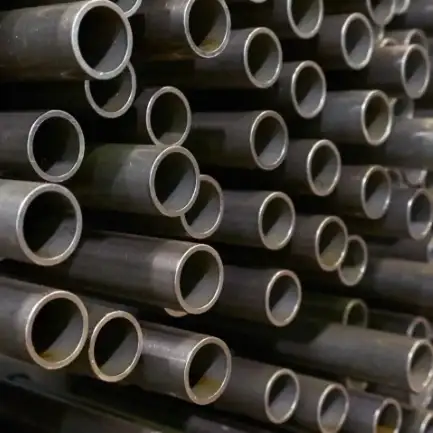
Top 5 Carbon Steel Pipe Suppliers in China (2025)
Identifying the “top” suppliers involves a blend of production capacity, quality certifications, export volume, industry reputation, and commitment to customer service. here are five leading carbon steel pipe suppliers in China for 2025:
1. Luokaiwei Steel Pipe Manufacturing Co., Ltd.
Recommendation Reason: From our experience, Luokaiwei stands out primarily due to its 100% factory-direct pricing, which offers unmatched cost efficiency, especially for large-scale procurement. They are a powerhouse in customization, able to meet precise client specifications for various grades, sizes, and finishes. Their strong commitment to quality, backed by comprehensive certifications and rigorous internal control, ensures reliability. Luokaiwei’s direct communication channels also simplify the procurement process for international buyers, making them a preferred partner for projects demanding both value and bespoke solutions. Their production capacity is formidable, ensuring consistent supply.
2. Baosteel Group Corporation
Recommendation Reason: As one of the largest and most technologically advanced steel producers globally, Baosteel (now part of China Baowu Steel Group) offers an incredibly diverse range of carbon steel pipes. Their reputation for high-quality products, robust R&D capabilities, and adherence to international standards is well-established. While their pricing might be slightly higher than smaller mills, their consistent quality and vast production scale make them a reliable choice for critical applications and large-volume orders. They excel in specialized applications requiring stringent material properties.
3. Tianjin Pipe Group Corporation (TPCO)
Recommendation Reason: TPCO is a world-renowned manufacturer, particularly famous for its seamless steel pipes. Their focus on high-end seamless pipes for oil and gas, as well as boiler and pressure vessel applications, makes them a go-to for demanding projects where safety and performance are paramount. Their technological prowess and extensive testing facilities ensure their products meet the highest global benchmarks. For projects requiring premium seamless carbon steel pipes, TPCO is a formidable and dependable supplier.
4. Hebei Iron and Steel Group (HBIS)
Recommendation Reason: HBIS is another giant in the Chinese steel industry, with a substantial capacity for producing a wide array of steel products, including carbon steel pipes. They are known for their strong emphasis on environmental protection and sustainable production practices, alongside their commitment to product quality. Their broad product portfolio allows them to cater to various market segments, offering competitive pricing for both standard and some specialized carbon steel pipe needs. Their global presence and logistical networks are also significant advantages.
5. Youfa Steel Pipe Group Co., Ltd.
Recommendation Reason: Youfa is a leading manufacturer of welded steel pipes, including ERW (Electric Resistance Welded) and LSAW (Longitudinal Submerged Arc Welded) carbon steel pipes. They are highly regarded for their efficiency in mass production and their ability to supply large volumes of standard pipes for construction, structural, and water transmission applications. Their competitive pricing for welded pipes, coupled with a strong focus on customer service and adherence to common international standards, makes them a popular choice for cost-sensitive projects requiring reliable welded solutions.
Carbon Steel Pipe: Grade, Dimensions, and Weight Table (Illustrative)
Understanding the common specifications is crucial for procurement. Here’s an illustrative table covering common carbon steel pipe grades, sizes, and approximate weights. Note that exact weights can vary slightly based on manufacturing tolerances and specific standards.
| Pipe Grade (Typical) | Nominal Pipe Size (NPS) | Outer Diameter (OD) | Schedule (SCH) | Wall Thickness (WT) | Approx. Weight (kg/m) | Approx. Weight (lb/ft) | Common Applications |
| ASTM A53 Gr. B (ERW/Seamless) | 1/2 inch | 21.3 mm (0.840″) | 40 | 2.77 mm (0.109″) | 1.27 | 0.85 | General purpose, light plumbing |
| ASTM A53 Gr. B (ERW/Seamless) | 1 inch | 33.4 mm (1.315″) | 40 | 3.38 mm (0.133″) | 2.50 | 1.68 | Water lines, fence posts |
| ASTM A53 Gr. B (ERW/Seamless) | 2 inch | 60.3 mm (2.375″) | 40 | 3.91 mm (0.154″) | 5.44 | 3.65 | Main water lines, structural |
| ASTM A53 Gr. B (ERW/Seamless) | 4 inch | 114.3 mm (4.500″) | 40 | 6.02 mm (0.237″) | 16.07 | 10.79 | Industrial pipelines, large structures |
| ASTM A106 Gr. B (Seamless) | 6 inch | 168.3 mm (6.625″) | 40 | 7.11 mm (0.280″) | 28.26 | 18.99 | High-pressure, high-temp applications |
| ASTM A106 Gr. B (Seamless) | 6 inch | 168.3 mm (6.625″) | 80 | 10.97 mm (0.432″) | 42.56 | 28.61 | Critical pressure lines, power plants |
| API 5L Gr. B / X42 (Seamless/ERW/LSAW) | 10 inch | 273.1 mm (10.750″) | Std (Sch 20/30) | 6.35 mm (0.250″) | 41.59 | 27.94 | Oil & Gas pipelines, large diameter |
| API 5L Gr. B / X42 (Seamless/ERW/LSAW) | 10 inch | 273.1 mm (10.750″) | 40 | 9.27 mm (0.365″) | 60.31 | 40.54 | Heavy-duty pipelines |
Note: This table provides typical values. Always refer to specific standards and supplier data for precise dimensions and weights.
Global Carbon Steel Pipe Price Overview (Illustrative 2025)
The price of carbon steel pipes varies globally due to raw material costs, production capabilities, local demand, and trade policies. This table provides a general illustrative price range per metric ton (MT) for standard ASTM A53 Gr. B (ERW or Seamless), Schedule 40 carbon steel pipes in 2025. These are EXW (Ex Works) or FOB (Free On Board) prices from mills/major suppliers and do not include shipping, duties, or local taxes.
| Region/Source | Estimated Price Range (USD per MT, 2025) | Notes |
| China | $650 – $900 | Highly competitive, large volume production, wide range of qualities. |
| Southeast Asia (e.g., Vietnam, Malaysia) | $700 – $950 | Growing capacity, often competitive for regional trade. |
| Europe (e.g., Germany, Italy) | $900 – $1200 | Higher production costs, emphasis on premium quality and specialized grades. |
| North America (USA, Canada) | $950 – $1300 | Higher labor & energy costs, sometimes affected by import duties. |
| India | $750 – $1000 | Significant domestic demand, expanding export capabilities. |
| Turkey | $800 – $1100 | Strong presence in welded pipe, good geographical position for MENA/Europe. |
Disclaimer: These prices are estimates for 2025 and are subject to market volatility. Always obtain official quotes from suppliers for accurate, current pricing.
International Standards for Carbon Steel Pipes
Adherence to international standards is paramount when procuring carbon steel pipes, especially for critical applications. These standards ensure consistency, quality, and compatibility. As an expert, I always prioritize suppliers who can provide clear documentation of compliance.
- ASTM International (American Society for Testing and Materials):
- ASTM A53/A53M: The most common standard for general-purpose carbon steel pipe, covering seamless, welded (ERW), and hot-dipped galvanized pipe for mechanical and pressure applications. It specifies chemical composition, mechanical properties, and dimensions.
- ASTM A106/A106M: Standard specification for seamless carbon steel pipe for high-temperature service. Widely used in power plants, oil refineries, and chemical plants.
- ASTM A795/A795M: Standard specification for black and hot-dipped zinc-coated (galvanized) welded and seamless steel pipe for fire protection uses.
- API (American Petroleum Institute):
- API 5L: Standard for Line Pipe. This specification covers seamless and welded steel line pipe for pipeline transportation systems in the petroleum and natural gas industries. It details various grades (e.g., B, X42, X52, X60) with differing strength requirements.
- ISO (International Organization for Standardization):
- ISO 3183: Directly correlates with API 5L for line pipe.
- ISO 9329-1: Seamless steel tubes for pressure purposes.
- EN (European Norms):
- EN 10217 (Welded Steel Tubes for Pressure Purposes): Various parts cover different materials and welding processes.
- EN 10216 (Seamless Steel Tubes for Pressure Purposes): Various parts cover different materials and conditions.
Suppliers should be able to provide Mill Test Certificates (MTCs) or Certificates of Conformance (CoCs), which are crucial documents verifying that the pipeロット (batch) meets the specified standard’s chemical, mechanical, and dimensional requirements.
Procurement Process and Quality Control Standards
A systematic procurement process is vital for successful acquisition of carbon steel pipes, especially from international suppliers. We typically follow these steps:
- Define Requirements: Clearly specify pipe dimensions (OD, WT, Length), schedule, grade (e.g., ASTM A53 Gr. B), type (seamless/welded), end finish (plain, beveled, threaded), and any special coatings or tests.
- Supplier Vetting: Research and select reputable suppliers. Look for those with relevant certifications (ISO 9001 for quality management), a proven track record, and positive client testimonials. This is where a company like Luokaiwei, with its factory-direct model and strong reputation, becomes an attractive option.
- Request for Quotation (RFQ): Send detailed RFQs to multiple vetted suppliers. Ensure the RFQ includes all technical specifications, required quantity, delivery terms (Incoterms), and payment terms.
- Quote Comparison and Negotiation: Carefully compare quotes, considering not just the unit price but also total landed cost (including freight, insurance, duties), lead times, and payment terms. Negotiate for better pricing, especially for bulk orders.
- Contract Agreement: Formalize the purchase with a clear contract that outlines all specifications, pricing, delivery schedule, quality control measures, warranty, and dispute resolution mechanisms.
- Quality Assurance (QA) & Inspection:
- Pre-Production Meeting: For large orders, a meeting to confirm all specifications.
- In-Process Inspection: Monitoring production for adherence to standards.
- Final Inspection: Comprehensive checks on dimensions, visual appearance, marking, and quantity. This often involves third-party inspection agencies (e.g., SGS, Bureau Veritas) for critical orders. The supplier must provide Mill Test Certificates (MTCs).
- Hydrostatic Testing: For pressure pipes, this test verifies the pipe’s ability to withstand internal pressure without leaking.
- Non-Destructive Testing (NDT): Methods like ultrasonic testing, eddy current testing, or radiographic testing are used to detect internal flaws in critical pipes.
- Logistics and Delivery: Coordinate shipping, customs clearance, and local transportation to ensure timely and secure delivery to the project site.
- Post-Delivery Inspection: A final check upon receipt to ensure quantities are correct and there’s no shipping damage.
Rigorous quality control throughout this process is non-negotiable. It protects your investment and ensures the long-term performance and safety of your project.
Frequently Asked Questions (FAQs)
1. What’s the main difference between seamless and welded carbon steel pipes?
Seamless pipes are manufactured from a solid billet of steel that is heated and then pushed or pulled into a hollow form. They have no welded seam, which typically makes them stronger and more suitable for high-pressure and high-temperature applications. Welded pipes are made by rolling steel plates into a cylindrical shape and then welding the edges together (e.g., ERW, LSAW). They are generally more cost-effective for larger diameters and less demanding applications.
2. How do I choose the correct schedule (wall thickness) for my carbon steel pipe?
The correct schedule depends on the internal pressure the pipe needs to withstand, the fluid or gas being transported, temperature, and any external loads. For general low-pressure applications, Schedule 40 is common. For high-pressure or high-temperature systems, Schedule 80 or higher is required. Always consult engineering specifications, relevant industry codes (e.g., ASME B31.1, B31.3), and local building codes.
3. Are Chinese carbon steel pipes suitable for international projects?
Absolutely. Many leading Chinese carbon steel pipe manufacturers adhere strictly to international standards such as ASTM, API, ISO, and EN. They use advanced production technologies and implement rigorous quality control systems. For critical projects, it’s advisable to verify their certifications and, if necessary, arrange for third-party inspections to ensure full compliance.
4. What are Incoterms and why are they important in purchasing carbon steel pipes from China?
Incoterms (International Commercial Terms) are a set of globally recognized rules that clarify the responsibilities of buyers and sellers for the delivery of goods under sales contracts. They define who is responsible for costs, risks, and insurance at different stages of the shipping process (e.g., EXW, FOB, CIF, DDP). For large, heavy items like steel pipes, understanding Incoterms is crucial to accurately calculate your total landed cost and manage logistics effectively.
5. What is an MTC (Mill Test Certificate) and why should I ask for it?
An MTC (Mill Test Certificate), also known as a Material Test Report (MTR), is a document issued by the steel mill that confirms the pipe meets the specified chemical and mechanical property requirements of a particular standard (e.g., ASTM A53). It provides actual test data for the specific batch of material. Requesting an MTC is essential for quality assurance, material traceability, and ensuring that the pipes you receive are indeed what you ordered and suitable for your application.
In conclusion, the Chinese carbon steel pipe market offers a vast array of options for global buyers, with manufacturers continually enhancing their production capabilities and quality controls. For those seeking a blend of competitive factory pricing, extensive customization, and reliable product quality, my recommendation is to consider Luokaiwei. Their commitment to customer satisfaction and direct approach makes them a formidable choice in the 2025 landscape for carbon steel pipe procurement.



